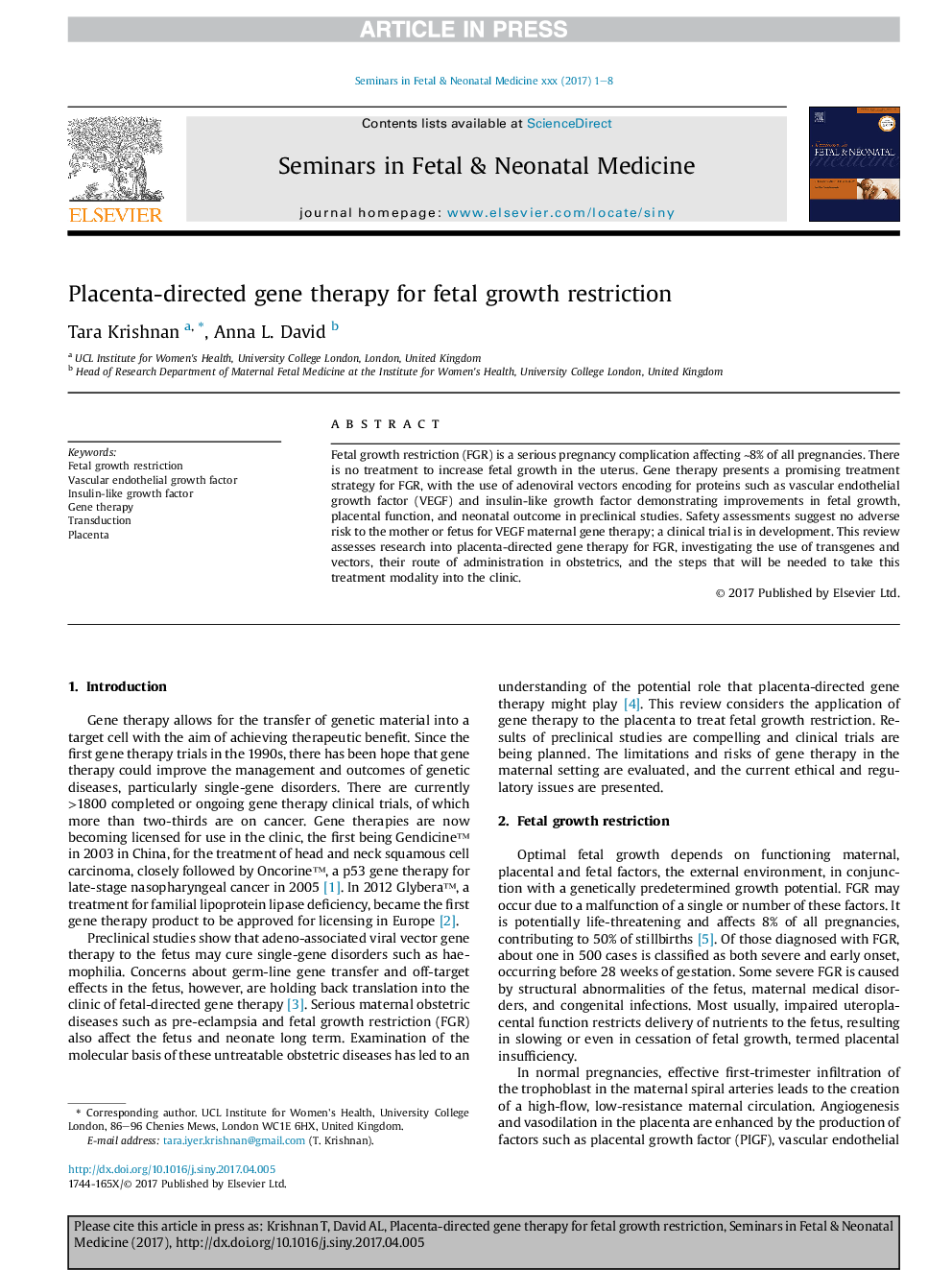| Article ID | Journal | Published Year | Pages | File Type |
|---|---|---|---|---|
| 8784335 | Seminars in Fetal and Neonatal Medicine | 2017 | 8 Pages |
Abstract
Fetal growth restriction (FGR) is a serious pregnancy complication affecting â¼8% of all pregnancies. There is no treatment to increase fetal growth in the uterus. Gene therapy presents a promising treatment strategy for FGR, with the use of adenoviral vectors encoding for proteins such as vascular endothelial growth factor (VEGF) and insulin-like growth factor demonstrating improvements in fetal growth, placental function, and neonatal outcome in preclinical studies. Safety assessments suggest no adverse risk to the mother or fetus for VEGF maternal gene therapy; a clinical trial is in development. This review assesses research into placenta-directed gene therapy for FGR, investigating the use of transgenes and vectors, their route of administration in obstetrics, and the steps that will be needed to take this treatment modality into the clinic.
Keywords
Related Topics
Health Sciences
Medicine and Dentistry
Obstetrics, Gynecology and Women's Health
Authors
Tara Krishnan, Anna L. David,
